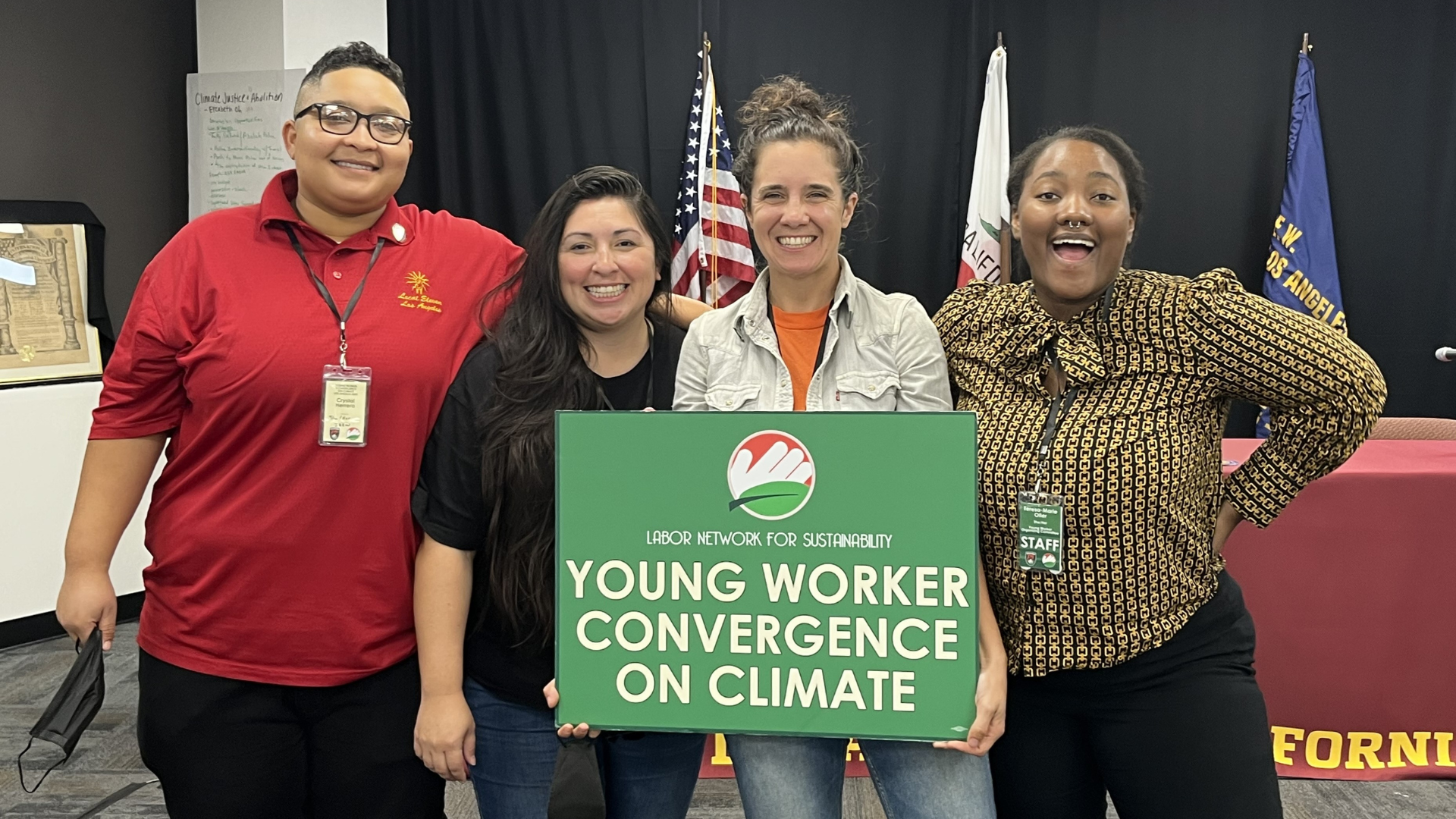
By Maria Brescia-Weiler, LNS Young Workers Project
The Young Worker Listening Project interviewed 70 young workers in all parts of the country about the ways climate change impacts how they do and think about work, and how their work informs their understanding of the climate crisis and potential solutions. They ranged from 16-year-olds who were just starting to think about what kind of work they might do to 35-year-olds with 20 years experience as construction workers, government employees, teachers, and nonprofit workers.
Many young workers shared common trajectories in developing their consciousness around climate change. While most interviewees never received formal education about workers and unions, almost everyone shared memories of learning about climate change as children. Folks talked about recycling and measuring their carbon footprints; watching An Inconvenient Truth; and seeing the news about Hurricanes Katrina and Sandy. Many of them perceived that the scale of the solutions they were being offered didn’t match the scale of the crises they were witnessing. Learning about climate change through the lens of individual responsibility often led to an understanding that urgent action must be taken – combined with feelings of anxiety and depression and a general sense of paralysis.
Generational consciousness-shaping events came up over and over again: 9/11 and the invasions of Iraq and Afghanistan; the Great Recession and the Occupy movement; direct action at Standing Rock in 2016, at the Trump Inauguration on J20, in the Youth Climate Strikes, and during the George Floyd uprisings.
Economic and environmental uncertainty have been the backdrop of young workers’ entire lives, and they have an intuitive understanding of how deeply linked these issues are to each other, as well as to issues of racial inequality, militarism and imperialism, and gender equity.
This has led many young workers to seek out education about and participation in collective action. They are seeking economic stability, a sense of community, and the opportunity to effect political change, and have realized worker activism and union participation can provide avenues for achieving all of these at once. This is the foundation of a shared and unrelentingly intersectional analysis that has brought many young workers to the Young Worker Project and on which we hope to build deeper coordination for a powerful labor-climate movement.